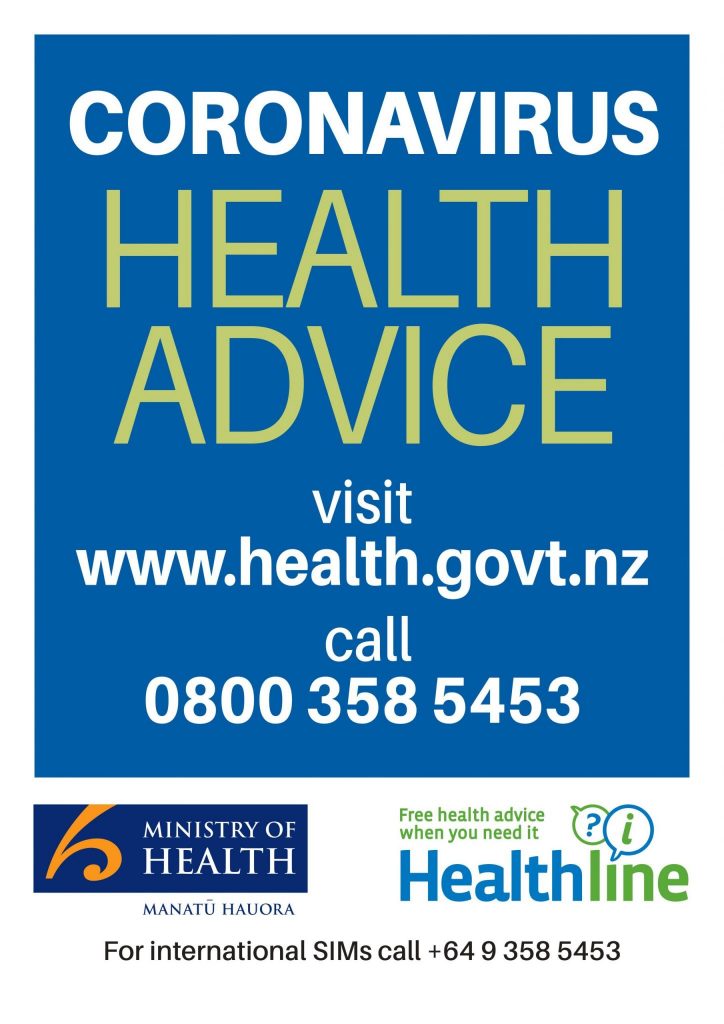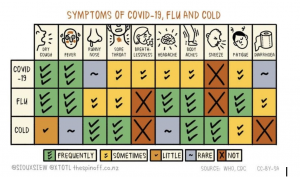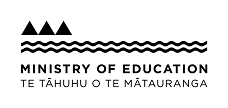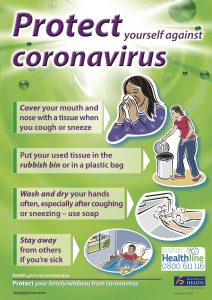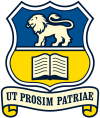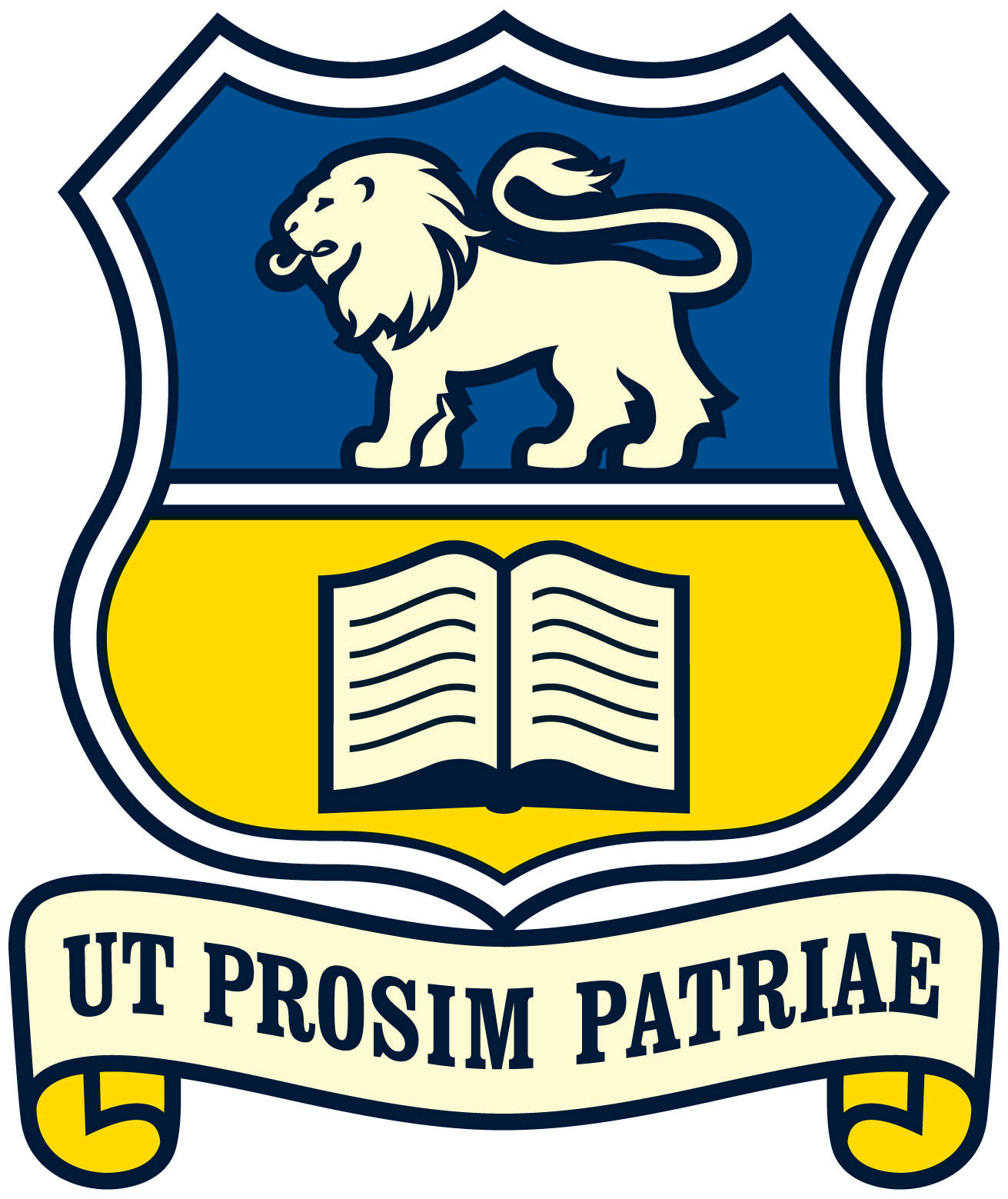21 April 2020
Kia ora e te whanau
Introduction
We hope that Term 2 and our online learning programme has been a success for you so far. We know there will have been challenges for you to deal with, but we have been getting some great feedback about the learning that is happening and thank you for all your support. I would like to thank all staff/kaimahi and taiohi/students for their great commitment to learning and adapting to our situation as it changes. Thank you so much for advising of any issues experienced so that we can help taiohi/students get positively connected with their lessons. Whatever the reason, it is vital we know so we can help.
10 April 2020
Kia ora e te whānau,
I hope this message finds you and your whānau fit and well and are spending quality time with each other over the Easter break, before we prepare for the start of Term 2. We appreciate all the support by whanau to get into regular learning routines again, helping to supervise learning and ensure online safety.
Update
Currently the COVID-19 Alert Level 4 is due to remain in place until Thursday 23 April with any decision to change that expected on Monday 20 April. Schools and kura will be open for instruction from Wednesday 15 April with the teaching and learning taking place remotely. The Ministry of Education updated schools yesterday evening. We are including relevant information within this pānui, along with the plans we have made to date, hence the timing of this update.
I would like to take this opportunity to thank the Kaiako / teachers for all their work on the Online Learning Plan for Thames High. We also appreciate the support that we have received from whānau during these challenging times.
As always we will follow Government advice on what happens beyond the next two weeks. The Ministry of Education has indicated that once a decision on whether or not the Alert Level will change they will give some guidance as to what Alert Level 3 will require. We will always update you as soon as we know what the implications are for our school and community. What we do know is that any transition to Level 3 is not expected to be immediate, allowing time to prepare the school for any return.
Accessing learning
Over the last couple of weeks we have helped the Ministry of Education to gather information about those students needing a device or internet access. We have been advised that provision of available school devices is the first option, and will be in contact once we have a confirmed plan. Other options are to supplement the hardcopy resources that some taiohi / students were provided with other materials that the Ministry has provided. If circumstances have changed from what we knew at the end of Term One (and you haven’t yet contacted us), please make contact with Carolyn Green (contact details below).
Online Learning Plan
We have updated the guidelines taiohi/students for how the online learning will happen commencing Wednesday 15 April. Please follow this link to our Online Learning page on our website.
As for normal schooling we need to monitor attendance and progress with the learning / lessons that have been put in place. This includes that we ask you to follow normal processes should taiohi / students become unwell and unable to complete school work. Each Kaiako/ teacher will have a tracking sheet for every class to monitor that taiohi/students are going online and attempting to do the work. We will be in contact if this is not happening in order to work together to find a solution. We appreciate early contact with our Attendance Officer (attend@thameshigh.school.nz) and/or Kaitiaki / Deans to advise of any issues or ways we can support learning from home. Please refer to contact details on our website.
We will also have learning support staff available to give more help to those taiohi/students who are experiencing any difficulties with the work. The Online Learning page has some links to ways to access support if you have concerns about wellbeing. Our School Counsellor, Susan McInnes, is also available to provide confidential support; please contact at susanmcinnes@thameshigh.school.nz.
If you have any suggestions, questions or concerns please do not hesitate to contact one of the Senior Leadership Team.
Matua Michael Hart at michaelhart@thames.school.nz
Whaea Maria at mariabaird@thameshigh.school.nz
Natalie O’Neil at natalieoneil@thameshigh.school.nz
Carolyn Green at carolyngreen@thameshigh.school.nz
Sharyn Baker at sharynbaker@thameshigh.school.nz
On behalf of the Senior Leadership Team we wish you a safe and happy Easter.
Some valuable links
- Advice from the Ministry about supporting learning at home
- Learning from home: https://learningfromhome.govt.nz/
- Learning from home wellbeing guide: https://learningfromhome.govt.nz/wellbeing
- For those with younger children may find this guide useful: https://sparklers.org.nz/parenting/
- Advice from Netsafe about staying safe online
Ngā mihi
Whaea Maria Baird
Acting Tumuaki
Friday 27 March
Kia ora koutou
We have started into a new phase of New Zealand’s response to COVID-19 and it is very different than anything most of us have ever experienced. I wanted to reassure you that our school staff and Board of Trustees will continue to be available to support your child’s learning and wellbeing in the next weeks.
You will understand the importance of routine for your family. If your routine has been shaken up, like you’re now working from home, it’s good to structure your time. Routines are reassuring, and promote health and physical wellbeing. The below timetable (targeted at children) could be something your household adapts to use over the next weeks. A school holiday version will likely look a little different, but some form of routine will still be important as we go through the lockdown period.
Daily Schedule
| Before 9:00am | Wake up | Eat breakfast, make your bed, get dressed, put any dirty clothes in the laundry |
| 9:00-10:00 | Morning walk | Family walk with the dog, bike ride, Yoga if it’s raining |
| 10:00-11:00 | Learning at home | School-led learning or Sudoku, books, flash cards, study guide, journal etc |
| 11:00-12:00 | Creative time | Lego, magnatiles, drawing, crafting, play music, cook or bake etc. |
| 12:00 pm | Lunch :) | |
| 12:30 | Helping at home | # wipe all kitchen tables and chairs # wipe all door handles, light switches and desk tops # wipe both bathrooms – sinks and toilets |
| 1:00-2:30 | Quiet time | Reading, puzzles, nap, radio NZ stories |
| 2:30-4:00 | Learning at home | School-led learning or iPad games, Prodigy, Educational show |
| 4:00-5:00 | Afternoon fresh air | Bikes, walk the dog, play outside |
| 5:00-6:00 | Dinner :) | |
| 6:00-8:00 | Free TV time | Kids shower time |
| 8:00 | Bedtime | All kids |
| 9:00pm | Bedtime | All kids who follow the daily schedule & don’t fight |
*Adapted from a resource developed by Jessica McHale Photography
There are links below to more wellbeing information to support your family during the lockdown.
Some good news to support you either working at home and/or studying at home – Spark, Vodafone, Vocus/Slingshot, 2Degrees and Trustpower have all advised they have removed their data caps and the possibility of any extra charges based on usage.
For our Pacific families, if you are not aware the Ministry for Pacific Peoples’ has been working to ensure useful information is available to Pacific peoples. A one-hour special will be aired on Tagata Pasifika’s segment on Saturday at 9am; and on Sunday at 7.35am, Tagata Pasifika will share messages from community leaders. The Ministry is asking you to reach out to all your family members, community groups, friends and group chats to ensure our Pacific community groups are watching the programming on both days.
A big thank you to all of you for taking the lockdown so seriously. As the Prime Minister has noted staying at home will break the chain and save lives; breaking the rules could risk someone close to you and if the rules are not complied with, this could risk the lock down period being extended or could risk the virus being spread to thousands.
Information and resources to support wellbeing and support learning at home
- The Ministry of Education has developed a resource for parents, caregivers, whānau and family – http://education.govt.nz/school/health-safety-and-wellbeing/pastoral-care-and-wellbeing/talking-to-children-about-covid-19-coronavirus/.
- The Ministry of Health’s website includes Top ways to look after your mental wellbeing during the Covid-19 lockdown.
- I AM HOPE is the youth and community focused support group run by The Key to Life Charitable Trust, started by Mike King – https://www.iamhope.org.nz/
- Nathan Wallis has some helpful videos on his Facebook page for parents and whānau – https://www.facebook.com/nathanwallisxfactoreducation/ –
- Tips on looking after mental health and wellbeing during COVID-19 from the Mental Health foundation https://www.mentalhealth.org.nz/get-help/covid-19/
- a website by the Health Promotion Agency to help New Zealanders recognise and understand depression and anxiety – https://depression.org.nz/covid-19/
- Although overseas-based this is a good list and highlights some things particularly important for children. Remember the rules of New Zealand’s level 4 lockdown still apply – 25 Mental Health Wellness Tips during Quarantine from Eileen M Feliciano, Psy.D.
Update on the provision of home-based supervision and care for the children (aged 0-14 years) of essential workers
As advised in yesterday’s Bulletin, the Government has agreed that three large home-based providers (Barnardos, Edubase and PORSE) will provide additional support to essential service workers, where workers are not able to make their own arrangements. These providers have national coverage.
The level of demand from essential service workers is not yet clear and we are exploring all options to make sure that essential service workers can do the important work necessary. In particular we are working with the wider network of home-based providers to identify additional carers in areas of high demand.
Essential workers should still continue to contact one of the following three providers if they have been unable to make their own arrangements:
- Barnardos – covid19enquiries@barnardos.org.nz
- Edubase – Home Grown Kids & Kids at Home 0508 44 54 37 or info@hgk.co.nz
- PORSE 0800 023 456
Please feel free to contact any of the senior leadership team if you have any queries.
Whaea Maria Baird – mariabaird@thameshigh.school.nz
Natalie O’Neil – natalieoneil@thameshigh.school.nz
Carolyn Green – carolyngreen@thameshigh.school.nz
Sharyn Baker – sharynbaker@thameshigh.school.nz
Remember, Be Kind, Be Safe, Be Inside
Kia Kaha,
He waka eke noa
Ngā mihi
Whaea Maria Baird
COVID-19 update Monday 23 March
| Thank you to all of you who have shown considerable leadership in the last few weeks. This is an unprecedented event, and will continue to challenge us all. I iterate the words of the Prime Minister – be kind, keep safe, and look after each other. I look forward to working with you and those staff who are interested in developing our distance learning options. We apologise sincerely for the delays in getting this information to you. We have been working with a range of agencies to be able to provide the following information. Government announcement – moving to Alert Level 3 for 48 hours and then Level 4
All other children will be at home. You will need to provide them with learning opportunities there to the greatest extent practicable. This could be either as a pack of materials, or for those with online learning already in place, implement your online learning programme.
|
————————
23 March 3pm
Kia ora koutou
You may have heard the PM’s latest announcement at 2 pm. today. Please note the following:
- School will be closed as from tomorrow for all students apart from those children whose parents are in essential services. This is to allow extra time to find alternative arrangements as from midnight Wednesday all schools will be in total lockdown and we will no longer be able to provide this service for the next 4 weeks.
- If you are in any of the listed essential services, please e-mail office@thameshigh.school.nz immediately should you require school supervision for your children.
- We will give the community an update later this evening once we have received and processed information from the MOE and MOH.
- We will update our facebook page and website.
Please take vigilant care of yourselves and your families over this period. And remember Kia Kaha – be kind, we will be ok.
He waka eke noa – we are in this together.
Mauriora
Whaea Maria Baird
COVID-19 Update 19 March
Kia ora koutou
Rules on gatherings do not apply to schools
You may have seen today that the Government has announced that indoor gatherings of more than 100 people are to be cancelled. This does not apply to schools, early learning services, tertiary providers, workplaces, supermarkets or public transport. We will continue to provide you with guidance around events and gatherings that could be relevant to schools
Why a school would close
There is a lot of discussion about school closures in the media with many varying opinions being expressed and some misinformation being deliberately spread.
At the time of writing we have already seen one temporary closure following direction from a Medical Officer of Health. This was following confirmation that one student had been tested positive for COVID-19. That student is self-isolating and all their close contacts (150 students and staff) have been tested for the virus. It has just been announced that all of those tests have come back negative.
The school will reopen next week however those 150 students and staff will remain away from the school for a period of 14 days from when they last had contact with the student confirmed with the virus. This is a precaution only, to keep those people and those around them safe
Medical Officers of Health – will direct schools to close if needed
Medical Officers of Health have the authority to close a school. They would only do so if there was a medical reason for this, or, after a confirmed case in the school they need to close it for a short period of time while they determine if there is any risk to others (which means staff and students stay away while they undertake contact tracing)
If you have a confirmed case in your school, or your school community
If there was a confirmed case linked with your school, you will be quickly advised of that by the Medical Officer of Health.
Our regional Ministry of Education staff will work with you and local health authorities to agree a plan for the school. That will happen quickly and support will be provided to assist you to communicate with and support your parent community. Closure for a short period of time is one option for the Medical Officer of Health
Decision tool for early learning and school responses to COVID-19
The Ministry is working with other government agencies to align our planning for a range of possible scenarios relating to schools and early learning services. An overview of our decision tool is available here for your information [DOCX]. This tool tells you what will happen in different situations.
We have seen this in practice already. An example for Level 1 was Westlake Girls High School, where a students’ parents were both confirmed with the virus but the student had no symptoms (and continues to have no symptoms). An example of Level 2 is Logan Park High School, where a student has tested positive for COVID-19.
You will see that higher levels of risk also have plans in place, which could include school closures for longer periods of time. Most of the scenarios at these higher risk levels relate to community transmission. Community transmission is when a confirmed case had no known contact with another confirmed case, and hasn’t recently arrived from overseas. There is currently no community transmission in New Zealand
When is sick, sick?
The messaging remains clear – that if you are feeling unwell please stay home, and the same goes for children and young people. However at the tail end of a cold, there will be runny noses and probably some coughing. This might be worrying for some people who are being vigilant about their own and others’ health.
A diagram has been developed by Dr Siouxsie Wiles to assist you when considering symptoms (sent to us by a teacher who found it useful). What it tells us is:
- A dry cough and a high temperature are common to both flu and COVID-19
- Sneezing is not a symptom of COVID-19, however if someone has COVID-19, then sneezing can spread droplets containing the virus
|
|||
|
|
|||
|
|
||
|
|


